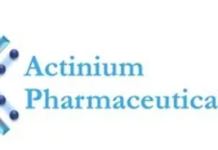Acasti Pharma Inc (NASDAQ:ACST) has announced that the Food and Drug Administration (FDA) responded to its request for a TRILOGY 1 Briefing Package, as well as a type C meeting.
The FDA responded through a letter in which it requested Acasti to conduct TRILOGY 2 efficacy analysis with full Intent to Treat (ITT), as was highlighted in the initial Statistical Analysis Plan (SAP). The FDA also revealed in its written response that it was in full support of TRILOGY 1 post-hoc analysis conducted on an exploratory basis.
According to the FDA’s response, the company might be required to conduct some more clinical analysis before submitting TRILOGY 2 data for a New Drug Application (NDA). However, the need for additional clinical data will depend on the TRILOGY 2 outcome.
Acasti has also revealed that it is carefully considering the FDA’s comments regarding the TRILOGY 1 data. The biopharma plans to run additional post-hoc tests as per the FDA’s feedback. Acasti also provided TRILOGY 1 post-hoc additional data during an investor conference held on June 29, 2020. The company also announced its year-end financial results.
Topline results from the TRILOGY 1 Phase 3 trial
The additional data that the company released during the investor conference revealed that triglyceride levels in patients being treated with CaPre achieved a 30.5% median reduction at 12 weeks. The triglyceride levels achieved a 42.2% median reduction at 12 weeks in patients with a statin therapy background before they were treated with CaPre. The treatment achieved a 36.7% median reduction at 26 weeks.
Acasti also revealed that although the findings from the Phase 3 clinical study indicate positive response in patients, the results failed to achieve the targeted statistical significance. This is because the study resulted in 27.5% and 28.0% median reductions in triglyceride levels in patients treated with a placebo in 12 and 26 weeks, resulting in a larger than usual placebo response. The treatment also failed to achieve the targeted statistical significance as far as the safety profile is concerned. No significant adverse events were recorded in the CaPre group and placebo group.
















